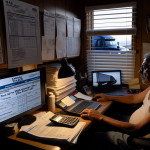With winter arriving early for large swaths of the country on Monday, November 10, 2025, a new Senate bill is zeroing in on a headache familiar to many fleets: engines that derate or shut down in extreme cold. A report in the trade press highlighted the move as temperatures plunged and snow snarled travel across the Great Lakes and into the Southeast.
The measure, filed as S.3135 by Sen. Dan Sullivan of Alaska and co-sponsored by Sen. Cynthia Lummis of Wyoming, would require the Environmental Protection Agency to authorize manufacturers to suspend engine derate or automatic shutdown functions during “prolonged cold weather” conditions. The bill was introduced on November 6 and referred to the Senate Environment and Public Works Committee; as of November 10, the Government Publishing Office had not yet posted bill text. That means details such as how “prolonged” and what temperature thresholds might trigger relief are still to come.
Why it matters for fleets: derates and shutdowns tied to aftertreatment or other protective logic can turn a minor fault into a roadside tow when temperatures dive. S.3135 is aimed at giving OEMs and engines more latitude to keep trucks moving safely when cold snaps hit, while EPA retains the reins on how any suspension is implemented. For carriers, the promise is fewer cold-weather strandings and more control over winter operations—particularly in regions where subzero mornings are routine. The bill’s scope and safeguards will hinge on the implementing guidance and definitions once text is available.
Timing is hard to ignore. On Monday, a burst of Arctic air drove some of the coldest autumn readings of the year across the eastern two-thirds of the U.S., with heavy lake-effect snow, freeze warnings as far south as Texas and Florida, and hazardous travel across portions of the Midwest and Appalachians. That weather backdrop underscores the operational stakes for fleets entering peak heating-fuel and retail season.
What’s next: the bill sits in the EPW Committee awaiting text and potential hearings. Multiple legislative trackers and Congress’ own database confirm its filing, sponsorship and referral—useful markers for compliance teams and industry advocates mapping engagement. Until legislative language appears, carriers and OEMs won’t know the exact flexibility envisioned or the reporting and emissions safeguards EPA may demand in return.
Bottom line for trucking leaders: there’s no immediate change to fleet policies or maintenance practices, but this is one to watch closely. If S.3135 advances with clear parameters, it could reduce weather-related derate downtime without compromising environmental compliance—especially valuable during early-season cold snaps like the one unfolding now.
Sources: FreightWaves, Congress.gov, LegiScan, FastDemocracy, Associated Press
This article was prepared exclusively for TruckStopInsider.com. Republishing is permitted only with proper credit and a link back to the original source.




